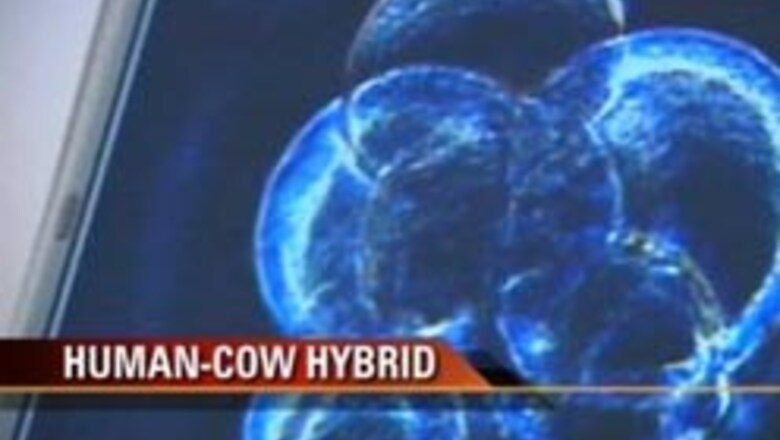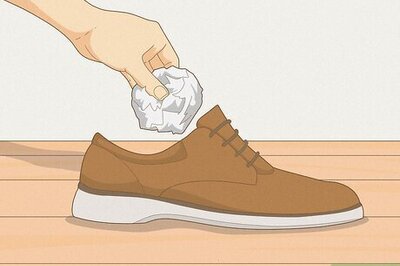
views
London: A debate has been triggered off in Britain after researchers at Newcastle University were successful in creating a human-cow hybrid embryo.
Although the embryo was destroyed in three days, scientists feel if they are successful in creating human embryos from animal eggs it will help develop cures for diseases such as Alzheimer's, Parkinson's and Multiple Sclerosis.
“The most hateful things that I've heard said about us is that they liken us to Mengele, to the Nazis, that we're creating monsters, that our research is grotesque and Frankenstein-like,” says Dr Stephen Minger of the Kings College, London.
Nonetheless, if the research is successful, it will benefit people like Caroline Haynes, who has been diagnosed with multiple sclerosis.
“We are the ones who should speak out about this, because we know more than anybody how this will affect us in the future,” says Patient, Caroline Haynes.
However, three members of Prime Minister Gordon Brown's cabinet have threatened to defy their leader and vote against the proposed Human Fertilization and Embryology Bill that will allow scientists to go ahead with this kind of research.
"I don't feel that these measures are unique, that we cannot look at other possible technical avenues to alleviate the diseases that exist in this world,” says Catholic Labour MP, Claire Curtis-Thomas.
“But if you say is it right to alleviate the disease of one by taking the life of another, then I'm afraid I cannot agree with that," says Catholic Labour MP, Claire Curtis-Thomas.
These tiny hybrid embryos may last just 3-days but the controversy they have created may last for longer.
Three cabinet ministers have already threatened to resign over the issue and some Labour MPs are likely to vote against the bill when it comes up in the next few weeks. So the fate of hybrid embryos will be decided, not in research labs, but in parliament.




















Comments
0 comment